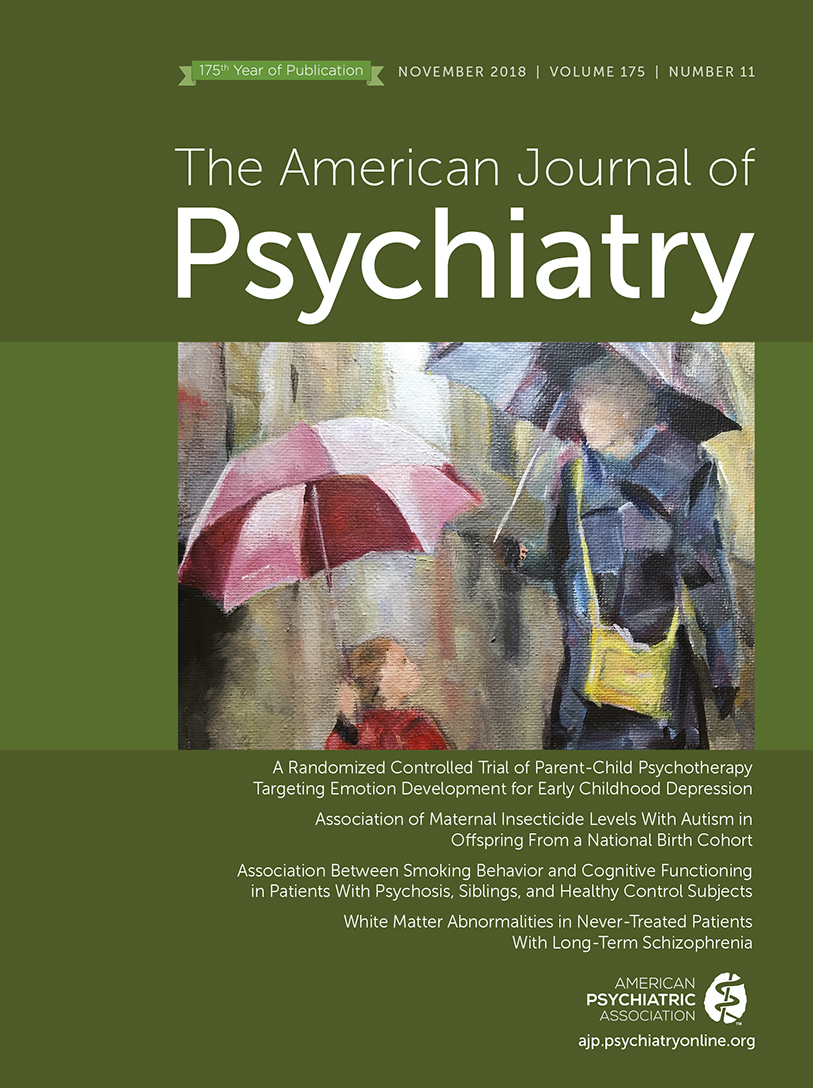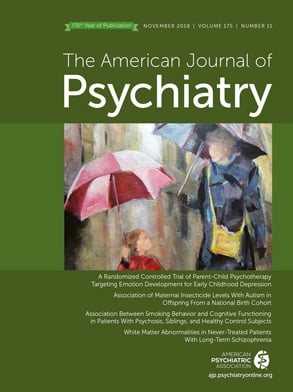The visibility of transgender and gender nonconforming (TGNC) individuals in society has lagged behind that of sexual minorities (e.g., gay, lesbian, and bisexual). As a result, the focus on unique issues, including health care, for these individuals has also lagged behind—this is particularly true in mental health. The gender minority stress and resilience model demonstrates how the distinct stressors faced by TGNC individuals, including rejection, nonaffirmation, discrimination, victimization, internalized transphobia, and negative expectations, result in increased rates of mental illness and suicidality (
1). Unfortunately, many barriers to health care, including mental health care, exist for the TGNC population. In addition to health insurance inequities and socioeconomic barriers, TGNC individuals also cite discrimination and lack of cultural competence by health care providers and, most importantly, a paucity of providers sufficiently knowledgeable on transgender health (
2). Until the publication of DSM-5, being transgender was considered a psychiatric disorder. The removal of gender identity disorder, and its replacement with gender dysphoria, was a move in the right direction but still underscores an inherent bias in American psychiatry. This bias is reflected in the lack of education in medical schools and residencies of the specific health issues related to the TGNC population. Some practitioners are clear that they don’t have the appropriate knowledge to treat these individuals, choosing to refer them to other clinicians, while many other practitioners confuse feeling “comfortable” with transgender patients with feeling “competent”—in other words, they don’t know what they don’t know. Eric Yarbrough’s new book,
Transgender Mental Health, is a much needed and vital tool for the mental health care practitioner and for all health care providers.
Yarbrough starts his book addressing cultural competency for the TGNC population, outlining the basics of understanding gender and nonbinary concepts, and then importantly adds a discussion of the historical and cultural context of the TGNC experience. This adds a richness to understanding the mental health concerns presented later in the book. He then concludes this section with practical recommendations and outlines for the mental health care practitioner, including how to make your practice “TGNC friendly,” how to advocate for your patients, and how to write letters of support for gender-affirming treatment.
The second section of the book focuses on mental health issues. Yarbrough’s straightforward writing style and use of clinical vignettes ensure readers’ understanding of issues they may never have considered. He addresses the role of the mental health care provider in providing comprehensive TGNC competent care, as well as the common struggles experienced in this population.
Perhaps one of the most important sections of this work, however, is the final section dedicated to primary care. Yarbrough smartly included an easy-to-understand guide to TGNC general medical health care for the mental health care provider. He describes the range of gender-affirming treatments from hormones to the various forms of “bottom surgery,” including pros and cons of each intervention and what an individual can expect from each intervention. This knowledge is of particular importance to the mental health care clinician who looks to support TGNC clients in transitioning.
Eric Yarbrough has created an admirable and accessible book for all mental health care practitioners, regardless of their level of training. This work goes a great way toward addressing one of the greatest barriers to appropriate care for the TGNC community—namely, provider ignorance.


